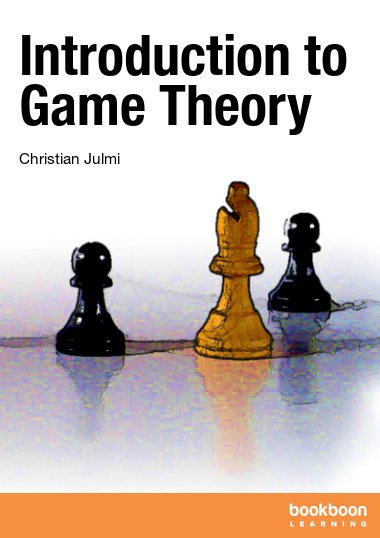This textbook provides an overview of the field of game theory which analyses decision situations that have the character of games. The book is eminently suitable in particular as introductory reading and is meant to sharpen the reader’s strategic thinking abilities. The understanding of game theory concepts and the introduced solution approaches can enlighten in nearly all areas of life – after all, along with economics, it is not for nothing that game theory is applied in a huge number of disciplines, from sociology through politics and law to biology.
About the author
Christian Julmi was awarded a doctorate in business economics at the Faculty of Business Administration and Economics, University of Hagen (Germany). In his dissertation, he discussed the development dynamics and method of appearance of atmospheres in organizations thematically. He is an Associate Member of the international research network “Atmospheric Spaces”. In 2007, he was awarded a master’s degree in industrial engineering from the Karlsruhe Institute of Technology (KIT). His research focuses on the area of decision theory and on management and organization theory in general.


